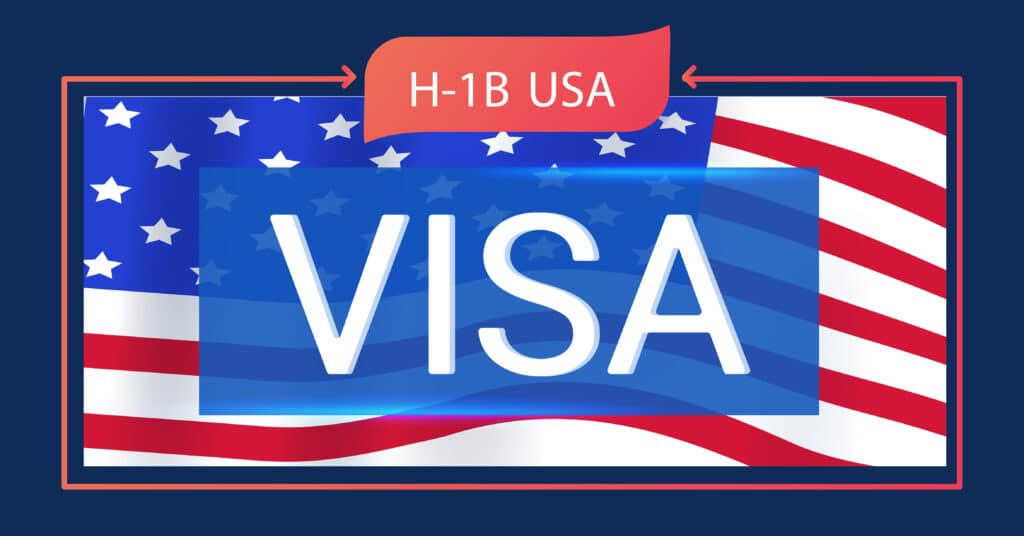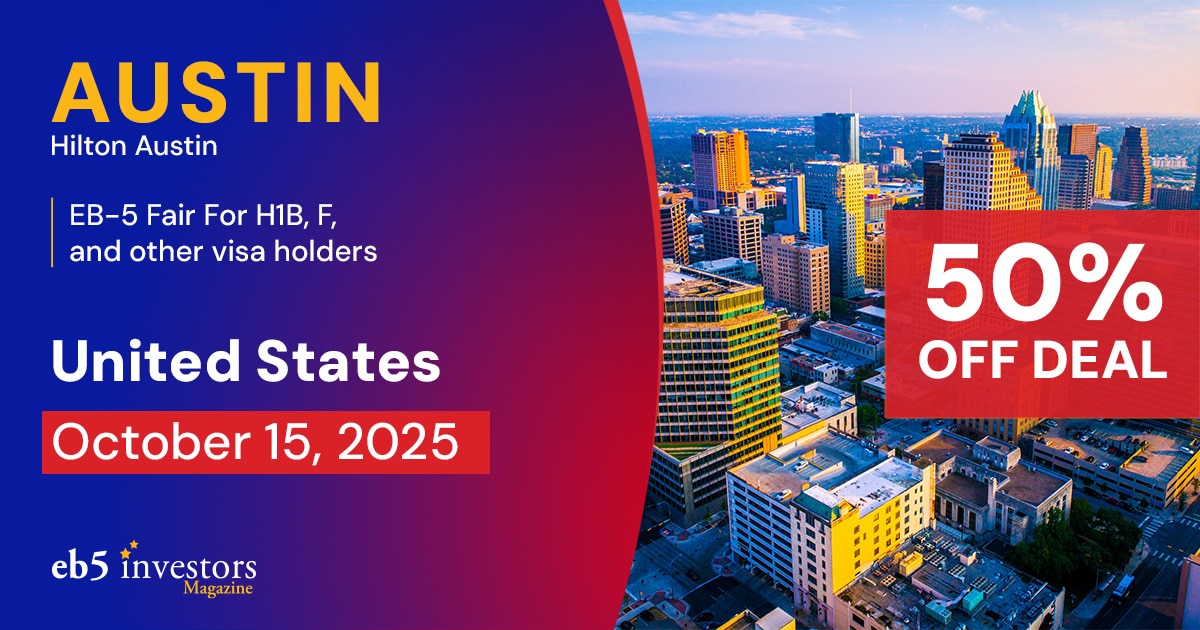
President Donald Trump today added a new annual $100,000 fee for U.S. employers sponsoring H-1B visas, the latest move aimed at curbing abuse and protecting jobs for Americans.
“We need great workers, and this pretty much ensures that’s what’s going to happen,” Trump said while signing the proclamation in the White House.
The H-1B visa is designed for skilled workers in specialty occupations and typically does not require a personal financial investment. However, the main costs are related to application and legal fees paid by the employers.
“It’s an incentive to hire Americans,” said Commerce Secretary Howard Lutnick about the free and added that it aims to have companies prioritize hiring U.S. workers over foreigners.
The update is expected to restrict entry, and the move aims to ensure that companies only sponsor workers who have rare skill sets and prioritize American hires.
The new fee and related restrictions to H-1B visas, including renewals and new applicants, will take effect on Sept. 21 at 12:01 am ET.
“One of the most abused visa systems in our current immigration system is the H-1B non-immigrant visa,” Lutnick said. “Is the person valuable enough for the company to pay $100,000 to the government, or should they head home and you hire an American?”
White House argues fees are necessary to stop H-1B “abuse”
In his proclamation, published by the U.S. government shortly after signing it at an Oval Office event, President Trump argued that the fee is necessary to curb the abuse of the program while still allowing skilled workers to be hired.
The government also listed employer abuse of the program, wage suppression, increased foreign labor, job losses to U.S. workers, and national security threats as the main concerns behind the decision.
“Some employers, using practices now widely adopted by entire sectors, have abused the H-1B statute and its regulations to artificially suppress wages, resulting in a disadvantageous labor market for American citizens, while at the same time making it more difficult to attract and retain the highest skilled subset of temporary workers, with the largest impact seen in critical science, technology, engineering, and math (STEM) fields,” the proclamation reads.
A higher cost for companies seeking to use H-1B talent will offset the “severe harms that the large-scale abuse of this program has inflicted on our economic and national security demands an immediate response. I therefore find that the unrestricted entry into the United States of certain foreign workers who are described in section 1 of this proclamation would be detrimental to the interests of the United States because such entry would harm American workers, including by undercutting their wages.”
Starting Sept. 21, H-1B visa petitions must include a $100,000 fee for foreign workers. Sponsor employers must ensure this payment before submission, as only compliant petitions will be approved. However, the Secretary of Homeland Security can exempt certain cases if it serves the national interest and security. Additionally, the Secretary of Labor is directed to revise prevailing wage levels and prioritize high-skilled, high-paid foreign workers.
Fees add pressure on the H-1B program
U.S. immigration attorney Tahmina Watson cautions that this fee will negatively affect smaller companies that depend on this visa for skills not available in the U.S. workforce.
“A $100,000 fee for an H-1B application would be devastating to the program, and catastrophic for startups and small businesses,” she says. “Unlike tech giants with deep pockets, these employers don’t have the financial reserves to absorb such costs. They rely on highly specialized talent to get off the ground, bring their products to market, and create the very jobs that fuel the American economy. Pricing them out of the system risks silencing the voices of innovation that have always driven America forward.”
The new fee joins a proposed rule by the Department of Homeland Security (DHS) to reshape the annual H-1B visa lottery. The proposal has yet to be published in the Federal Register for public comment.
The program had already received an overhaul earlier this year. The changes introduced aimed to clarify requirements and improve program efficiency, providing greater benefits and flexibility for petitioners and beneficiaries, and strengthening program integrity measures.
How much do H-1B applicants pay now?
Currently, the fees involved with the H-1 visa application process that sponsor employers must pay for their non-immigrant worker are:
- $215 H-1B registration fee
- $250 Visa Integrity Fee from the One Big Beautiful Bill.
- $780 fee for filing Form I-129 on paper, and $730 if filed electronically.
Additional fees involve, for paper and online filings:
- $500 Fraud Prevention and Detection fee if petitioners are seeking initial approval for an H-1B nonimmigrant status for a beneficiary or approval to employ an H-1B nonimmigrant currently working for another employer. However, applicants under the Chile or Singapore H-1B1 Free Trade Nonimmigrants agreements are exempt from this fraud fee.
- $4,000, as mandated by Public Law 114-113, if the employer employs 50 or more individuals in the United States, and more than 50% of those employees are in H-1B, L-1A, or L-1B nonimmigrant status.
Additionally, under the American Competitiveness and Workforce Improvement Act (ACWIA), employers filing for their H-1B visa applicants must pay:
- $1,500 or $750, depending on the number of workers the petitioner employs. However, applications involving the Chile or Singapore H-1B1 Free Trade Nonimmigrant deals must submit an additional ACWIA fee unless they qualify for an exemption under Section 2 of the H-1B Data Collection and Filing Fee Exemption Supplement.
EB-5 Industry gauges impact of the new H-1B visa fee
H-1B visa holders are a major source of EB-5 applications in the U.S. as they seek permanent residency after their six-year period.
The EB-5 Immigrant Investor Program offers a clear, structured, and lawful path to permanent residency supported by the Reform and Integrity Act of 2022, which renewed the program until September 2027.
However, U.S. immigration attorneys caution that the new fee may influence H-1B applicants’ decision to transition to EB-5.
Attorney Steven Brown from Reddy Neumann Brown PC projects a “chilling effect.”
“If people see that rules can change with a snap of a finger, they might be less likely to invest heavily in America,” he says.
Watson notes that the EB-5 visa is not an option for all. “For some H-1B visa holders, the EB-5 investor visa might become a consideration, as it remains a stable pathway to legal permanent residence. But for most small to medium businesses, non-profits, research organizations, and early-stage founders, there simply is no substitute, leaving a critical gap in the talent pipeline at a time when the U.S. can least afford it.”
DISCLAIMER: The views expressed in this article are solely the views of the author and do not necessarily represent the views of the publisher, its employees. or its affiliates. The information found on this website is intended to be general information; it is not legal or financial advice. Specific legal or financial advice can only be given by a licensed professional with full knowledge of all the facts and circumstances of your particular situation. You should seek consultation with legal, immigration, and financial experts prior to participating in the EB-5 program Posting a question on this website does not create an attorney-client relationship. All questions you post will be available to the public; do not include confidential information in your question.








